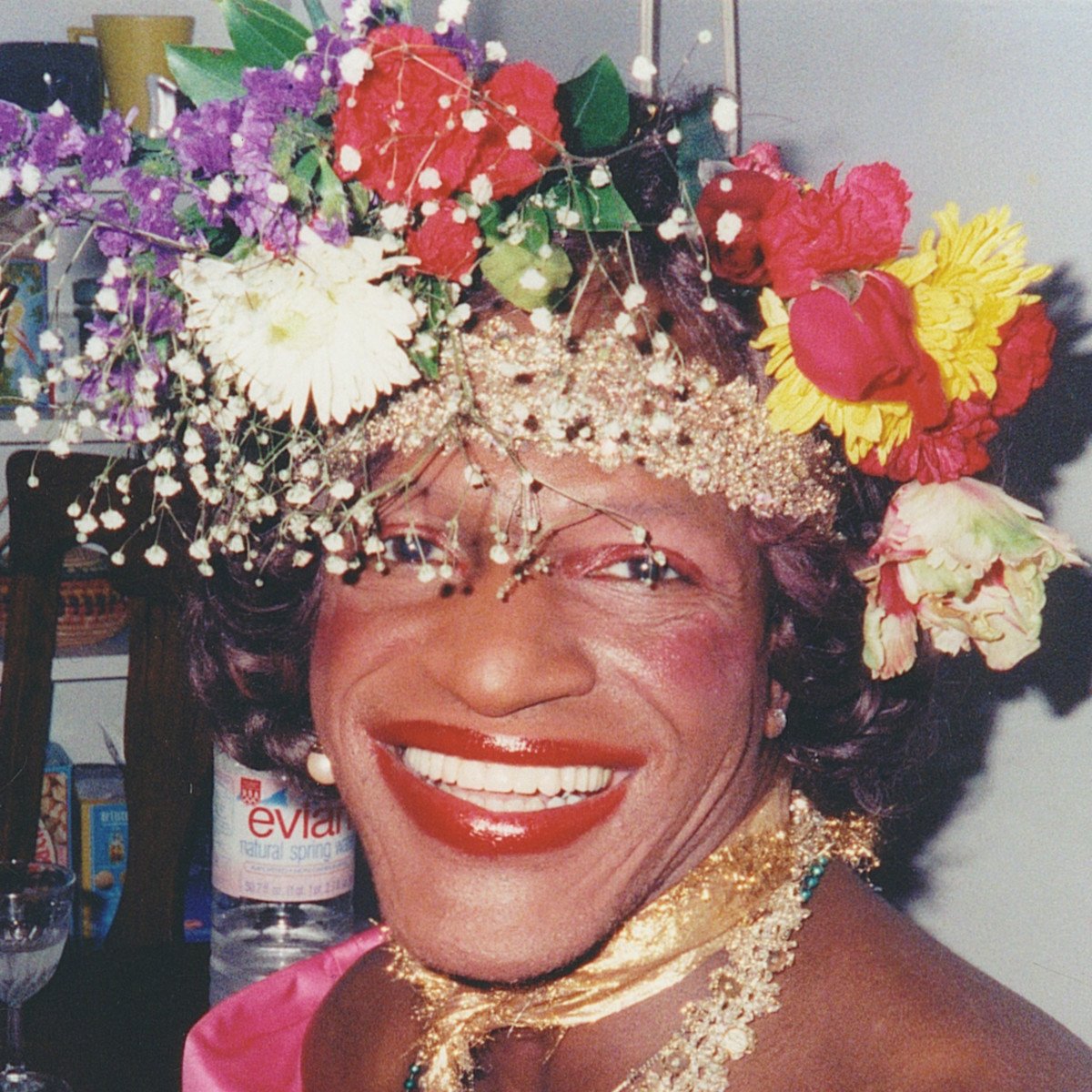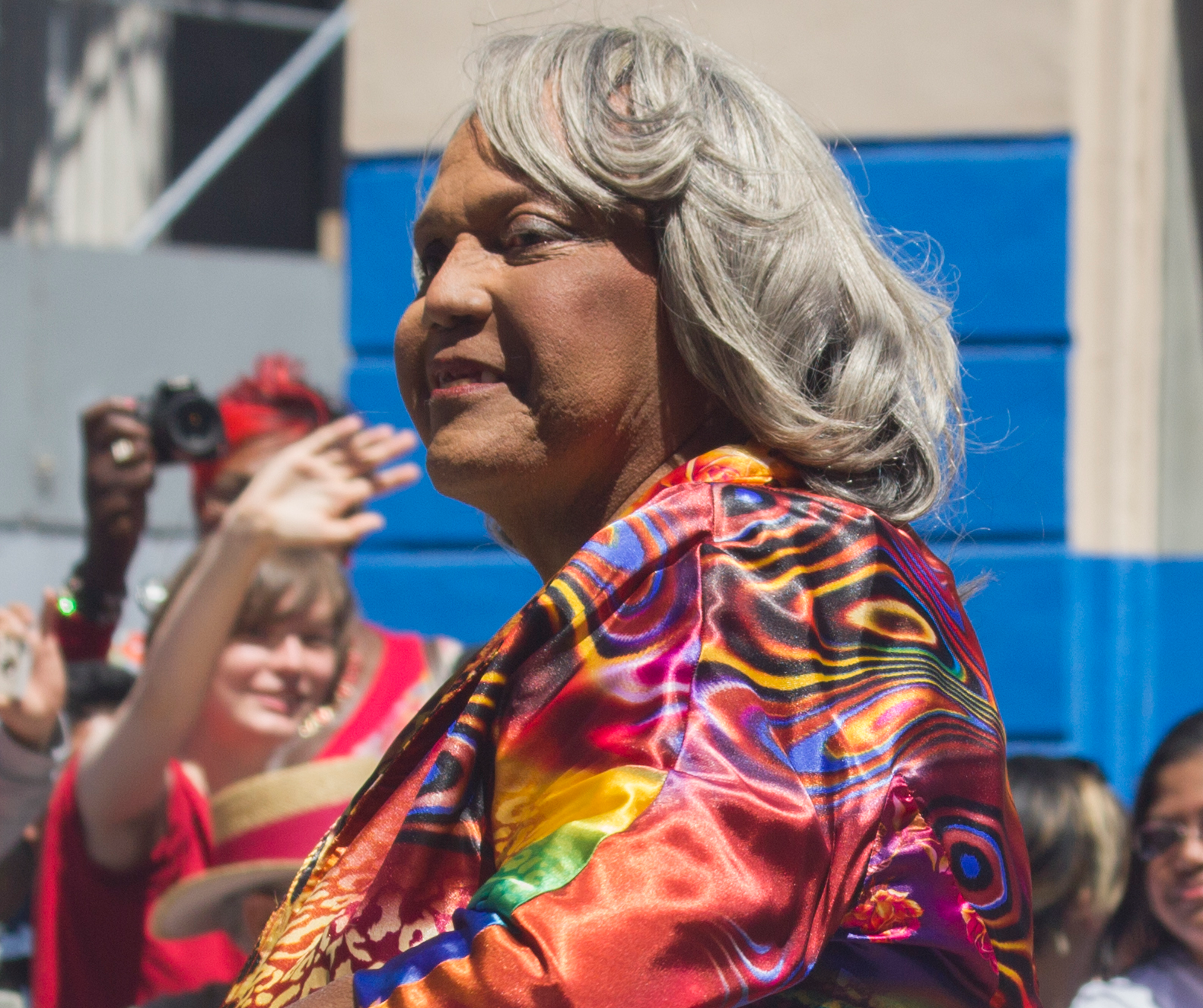The White Washing Of Pride
Progress or Nah?
Pride is more than just a month or a parade. Done properly, Pride is a movement, it is a reflection of the progress that was fought for and gained, as well as a look at the progress that needs to continue to occur.
It's more than just a rainbow version of your organization's logo — It's a celebration of the people within the queer community, in their full, unique and beautiful selves. And remember, after Pride is over and logos go back to normal, our queer friends, family and neighbours continue to be queer.
And not all of them get to do this safely.
For so many queer folk, the intersections of multiple types of oppression including homophobia, racism, classism, Islamophobia and ableism further compound freedom, rights and safety. Let’s name the overarching systemic oppression of queer folk is rooted in colonialism and white supremacy. What you'll see in this post is that so many of the freedoms and rights we see today (and again, queer liberation hasn't yet been reached) have been made possible through the blood, sweat and tears of Black trans women — and yet time and time again they aren't afforded the same freedoms, rights and safety that the cis, white queer folk are.
So this begs the question, have we really achieved any "progress" if what we have now isn't equitable?
Marsha P Johnson & Sylvia Rivera regular patrons of the Stonewall Inn
Queer Liberation
It can sometimes feel like we're living in a world that is inclusive and safe for 2SLGBTTQIA+ folk but the reality is so much progress still needs to be made in queer liberation. The 2SLGBTTQIA+ community in the West was once much more explicitly and violently oppressed than we see now, and we need to recognize that.
For decades, being in a same-sex relationship was so taboo that it was considered illegal, forcing 2SLGBTTQIA+ people to hide their love and their identity from the rest of the world. They were banned from holding federal jobs, barred from nightclubs and restaurants, and were thought of as being mentally ill and sexually deviant.
Although they faced many discriminatory laws and biased practices, many 2SLGBTTQIA+ people continued to live their lives as openly as they could. By protesting and forming organizations and support groups, queer folks created spaces where they could be their authentic selves.
History of Pride: Stonewall Riots
You might think that pride has always been about rainbows, glitter, and celebrating, but it took a long time and a lot of sacrifices to get where we are now.
Pride, as we know it now first, began with the Stonewall Riots on June 28, 1969. The Stonewall Inn was a club in New York that was a safe haven for queer people; a place where they could be themselves openly and without fear of retribution. The club was violently raided by police, leading to 6 days of protest and fighting against law enforcement.
The Stonewall Uprising was a major turning point for the gay rights movement, and the first-ever Pride was held on its 1-year anniversary.
“And it happened in Canada, too! The Brunswick Four case (1974), Operation Soap (1981), the Sex Garage raids (1990) and the Pussy Palace raids (2000) were critical turning points in Canada’s gay rights movement, in which the queer community had to fight hard for literal basic human rights and freedoms. ”
Stonewall Wasn't Just White Gay Men
There is no denying the fact that Stonewall was monumental for the 2SLGBTTQIA+ community. But, like most parts of Western history, the contributions of queer people of colour, specifically Black trans women, have been totally overlooked.
In 2015, the film Stonewall, directed by Roland Emmerich, was released and immediately drew criticism from the 2SLGBTTQIA+ community. Why? Because it largely ignored the crucial role Black trans women played at Stonewall.
The film mostly focused on white gay men and their experiences, which are not universal. Gay men have endured hardships and discrimination, but they have not had to face the sexism, racism, and transphobia that other queer people have. This obscures how people with intersecting identities have unique experiences of oppression: there is no one, single 2SLGBTTQIA+ experience.
Marsha P. Johnson
One of the key figures of the gay rights movement, and a major participant at Stonewall, was Marsha P. Johnson, a Black trans woman from New Jersey.
Johnson played an important role in queer liberation for over 25 years, helping create one of the first safe spaces for transgender youth and taking part in the Stonewall Riots.
"As long as my people don't have their rights across America, there's no reason for celebration." - Marsha P. Johnson
Miss Major Griffin-Gracy
Miss Major Griffin-Gracy (but please, call her Miss Major) was another pivotal player at Stonewall.
Since then, Miss Major, a Black Trans woman, former sex worker and prison survivor, has worked in the 2SLGBTTQIA+ community for over 50 years.
She has worked to end discrimination against trans and non-binary people incarcerated in men's prisons and has been a major advocate for equitable HIV/AIDS treatment.
"The thing that makes us radical is we don’t accept what is handed to us. We don’t accept that." - Miss Major Griffin-Gracy
Protect Black Trans Women
And let's be clear: Marsha P. Johnson and Miss Major are just two of the incredible Black trans women who have made Pride all that it is today. And despite the undeniable role Black trans women have played in getting 2SLGBTTQIA+ rights where they are today, they are still a deeply underrepresented marginalized community.
The life expectancy for Black trans women in America is just 35 (WTF?!), compared to Black cisgender women who have a life expectancy of 78 years old. 2021 was also the deadliest year for trans people to date, with 45 homicides, mostly against trans people of colour. Despite being at the forefront of activism and often leading the charge for change, Black trans women are disproportionately victimized and targeted by violence, facing sexism, racism, and transphobia.
Pride is a celebration, but it is also about fighting for basic human rights, like access to healthcare, housing, and education, something that not all 2SLGBTTQIA+ people have equal access to.
Pride is More Than Parades and Parties
Pride is rooted in Black and Brown trans people fighting for equality. As Pride has become more mainstream, and corporations are rainbow-washing their logos to appear 'for the people, we can't forget how it started and who made it possible.
Even though progress has been made, like expanding the Pride flag to explicitly honour trans people, intersex people, and 2SLGBTTQIA+ people of colour, Black trans women continue to be marginalized and pushed to the side during the very celebrations they helped start.
So, What's Next?
This year for Pride, we encourage you to go to parades, binge-watch Drag Race, party with your friends (covid permitting), and celebrate to your heart's desire.
We also encourage you to call your elected representative and urge them to put better protections in place for Black Trans women.
Take the time to educate yourself on the oppression faced by Black trans women —and how they made it possible for you and/or loved ones to celebrate your identity by day drinking at drag brunch.
Be critical of performative allyship, and have conversations in private and publically on your socials. For example, what exactly is the point of renaming TTC stations to Qween or Welleslay? Can we allocate resources instead to the mental health crisis that disproportionately affects queer youth & folks who are unhoused are 2x more likely to be from the queer community?
Source: PBS, History.com, QueerEvents.ca, CNN, Marie Claire, Black Women Radicals, PBS, Medium, The Independent.





